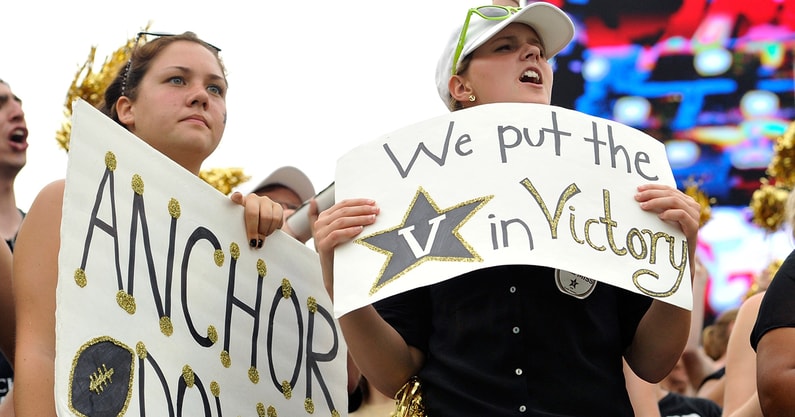Anchor Impact Fund, Anchor Collective consolidate in Vanderbilt NIL marketplace

One of the biggest focuses of Year 2 of NIL is the consolidation of collectives throughout the country. That trend continued Thursday with the announcement that The Anchor Impact Fund and Anchor Collective, the top Vanderbilt-focused groups, have merged.
According to a news release, The Anchor Impact Fund will continue to execute its mission of “connecting and engaging Vanderbilt student-athletes with impactful charitable organizations.” But the new combination will give The Anchor Impact Fund access to the Anchor Collective’s digital media assets.
Collective is a term for various organizations that facilitate NIL opportunities. When NIL became a reality in July 2021, there was a race to start groups at schools across the country. That race resulted in a number of schools having representation by multiple different collectives, which is something that complicates fund-raising opportunities.
Consolidation can be a win, though. With a one-stop shop for fans to donate, it can streamline the process of raising funds. That’s largely why we’ve seen collective mergers all over the country, including at top programs such as Ohio State, Oklahoma, Florida State and Texas. In fact, UCF’s Mission Control combined with The Kingdom NIL in late March.
Now Vandy has followed suit.
“Since the founding of the Anchor Impact Fund, we have sought to create impactful name, image and likeness opportunities for student-athletes in a manner consistent with Vanderbilt’s emphasis on giving back to our community,” Anchor Impact Fund executive director D’Juan Epps said. “This consolidation will do that by providing more opportunities for our student-athletes. Further, having one single collective will provide clarity for Vanderbilt fans and donors who want to support this exciting effort.”
Anchor Impact Fund will continue 501(c)(3) designation
According to Epps, the consolidation doesn’t impact The Anchor Impact Fund’s 501(c)(3) status from the state of Tennessee, and it aims to continue as a public charity. The collective’s nonprofit goals are to “promote community engagement and strengthen local charitable organizations and initiatives.”
“Founded in the belief that there is a different and more impactful way for Vanderbilt student-athletes to participate in the name, image and likeness landscape, the Anchor Impact Fund allows a student-athlete to help charitable organizations in Middle Tennessee while navigating and maximizing their NIL potential,” the fund’s website says.
Top 10
- 1New
Bruce Pearl
Defends Baker-Mazara after ejection
- 2
Kim Mulkey
Moves spotlight away from family death
- 3
Nate Oats
Fires shot at Auburn, Baker-Mazara
- 4Hot
Bracketology update
Alabama, Kentucky on the move
- 5
Eddie George
Emerges as finalist for HC vacancy
Get the On3 Top 10 to your inbox every morning
By clicking "Subscribe to Newsletter", I agree to On3's Privacy Notice, Terms, and use of my personal information described therein.
“It is a key resource for more than 350 Commodore student-athletes. More importantly, these activities will foster deep and meaningful relationships among Vanderbilt student-athletes, the organizations with which they are involved and the Middle Tennessee community.”
More NIL collective mergers expected
Several observers told On3 they anticipate more collective mergers in the future. The experts say consolidation makes sense and helps the collectives build a larger war chest for recruiting and retention efforts.
“I think it’s better for everyone involved,” Peter Schoenthal, CEO of Athliance, recently told On3. “One of the issues with NIL is that confusion leads to inaction. When fans, boosters and student-athletes have too many places to go or don’t know where to go, they tend to not get involved. Furthermore, every collective at a school tends to specialize or do one thing well that the others do not.
“By merging and coming together, you are removing the fog of confusion. You’re creating a unified front that allows everyone to get involved and therefore succeed. Collectives at universities should not be competing where ultimately they share a common goal.”